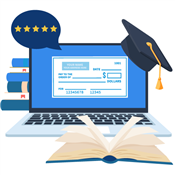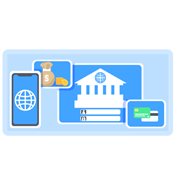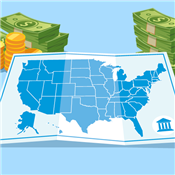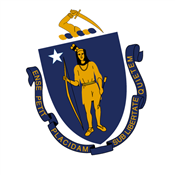Banking for International Students: First-Time Guide
Ad Disclosure: This article contains references to products from our partners. We may receive compensation if you apply or shop through links in our content. This compensation may impact how and where products appear on this site. You help support CreditDonkey by using our links.
If you've traveled thousands of miles to study in the U.S., you may be feeling a little bit of culture shock.
But here's one less thing to worry about.
In this article, we cover the basics of banking, credit cards, and finance for international students. You'll learn how to navigate banks in the U.S., open an account, transfer money, and more.
- Why Get a Local Bank Account
- How to Choose a Bank
- How to Open a Bank Account for International Students
- What to Know About Banking Fees
- Bank Accounts for International Students
- Applying for a Credit Card
- How to Transfer Money from Abroad
- Alternative Banking Products for International Students
- What If You Can't Open a Bank Account?
- How International Students Can Get a Social Security Number
- More Financial Resources for Students
Why Get a Local Bank Account
 |
While studying in the US, having a local bank account will make your life abroad a whole lot easier.
Here are some good reasons to open a local bank account:
- Save on conversions. You could continue to use your bank account and credit cards from home, but conversion rates and foreign transaction fees could cost you a lot. You can save on fees if you pay for things in local currency.
- Handle day-to-day finances. A local account will allow you to pay bills, make purchases, and withdraw cash from ATMs. Also, if you get a part-time student job, it's way easier to receive deposits into a local banking account.
- Receive financial aid. If you get scholarships, financial aid, stipends, etc., it's a lot easier to deposit them into a local bank account.
- Build credit history in the US. This will be important later on, especially if you plan to stay on after graduation. In the US, credit is important for everything, from getting credit cards to renting to applying for jobs.
How to Choose a Bank
 |
The first thing you'll want to do is decide which bank to open your account with. This is a very important decision since you'll be using this bank during your stay in the US.
It's best to check which banks are around your college campus. This will make it easier for you to apply for an account in person and withdraw money from ATMs.
There are couple of options:
- National bank: These are large banks that can be found throughout the country. This is a good choice if you want to travel around. The biggest national banks in the US are Chase, Wells Fargo, Bank of America, Citibank, and U.S. Bank.
- Regional bank: These are smaller banks that are only in your specific area. Sometimes, these banks offer more personal customer service and better terms.
Another option is to consider a credit union. Credit unions can be thought of as community banks owned and operated by the members. They offer most of the same services as banks. You can check if your campus has a credit union. Sometimes, they offer more flexibility.
How to Open a Bank Account for International Students
 |
Most banks will require you to be physically in the US first before you can open a local bank account. This means you may need to live off your bank cards from back home and cash for a couple of weeks.
Make sure you have the following information when you open a bank account:
- Your passport
- Student visa
- Proof of enrollment or student ID card
- A local US residential address
- Money to deposit
- F-1 (Academic Student Visa)
- J-1 (Exchange Visitor Visa)
- M-1 (Vocational Studies Visa)
Some banks may require that you show proof of your address. Usually, this means showing a signed lease or a utility bill in your name.
As an international student, you don't need to have a US Social Security Number (SSN) to open a bank account. We'll go into why you may want one later on.
What Account to Open
 |
There are 2 basic types of accounts you can open:
1. Checking Account
The first thing you want to do is open a checking account. This is necessary for day-to-day money management. You'll need a checking account to make purchases, receive money, and pay bills and rent.
Here are the usual features of a checking account:
- Debit card to make purchases and withdraw cash from ATMs
- Online bill pay
- Mobile check deposits just by taking a photo with your phone
- A set of checks (if you rent on your own, usually you'll pay rent with checks)
For most international students, a checking account is enough.
2. Savings Account
You may be asked if you want to open a savings account along with a checking account. A savings account is used for keeping extra money you won't need for everyday expenses. They usually offer a little bit of interest to help grow your money.
In the US, you can only make 6 withdrawals per month from your savings account. This is a federal law.[2]
What to Know About Banking Fees
 |
Unfortunately, banking is not always free in the US. Here are some common fees you may encounter:
- Monthly service fee: A lot of banks charge an account fee unless you keep a certain amount of money in the account. But usually for student accounts, banks will waive this fee.
- ATM fee: There's no fee for using your bank's ATMs. But if you use another bank's ATM, you'll be charged a fee. Make sure the bank you choose has ATMs on or near your campus.
- Overdraft fee: If you make a transaction and your account doesn't have enough money, this is called an overdraft. The bank will pay for it and charge you a fee.
If you have both a checking and savings account, you could sign up for Overdraft Protection. When you accidentally overdraw your account, your savings funds can be used to cover it.
- Wire transfer: If you want to receive money from your home country, wire transfers cost money. We'll go over a cheaper option of sending money below.
Bank Accounts for International Students
 |
These popular bank accounts are open to international students:
| Bank / Checking Account | Region | Service Fee / Features |
|---|---|---|
| Chase College Checking | National | No service fees for students 17-24 |
| Bank of America Advantage SafeBalance Banking® | National | No service fees for under age 25. Also gives you a chance to get a credit card without a SSN. |
| Wells Fargo Everyday Checking | National | No service fees for students 17-24 |
| U.S. Bank Student Checking | National | No account service fees for students. On-campus branches in many schools |
| HSBC USA Checking | East & West Coasts | HSBC is a global bank. You can connect to an HSBC account back home for easy money transfers. |
| PNC Bank Virtual Wallet Student Checking | East Coast | Free for students up to 6 years. You also get one free incoming wire transfer per month. |
| TD Bank Convenience Checking | East Coast | No monthly service fee for students 17-23 |
| Santander Bank Student Value Checking | Northeast | No monthly service fee or minimum balance for students 14-25 |
Applying for a Credit Card
 |
Getting a credit card as an international student is a bit trickier. Usually, banks need a Social Security Number in order to check your credit score when approving you for a credit card.
Everyone in the U.S. has their own credit score, which is a number that tells potential lenders how reliable you are when it comes to paying your debts.
But as a new international student, you don't have a SSN or credit history in the US. Even if you had amazing credit in your home country, you can't transfer it to the US.
If you have a student job, you could apply for a SSN. If you don't have a job, you could possibly get an Individual Taxpayer Identification Number (ITIN), which also has 9 digits like a SSN. Some card issuers require this number. And some issuers may let you apply with just a passport number.
Credit Cards for International Students
 |
Since you have no credit in the US, your best option is to apply for a secured credit card.
This is a special type of credit card for those with no (or poor) credit history. Unlike a regular credit card, you have to put down a deposit, which usually becomes your credit limit. For example, if you deposit $300, then your credit limit will be $300.
By using it responsibly, a secured card will help you build credit in the US.
Unfortunately, you have very limited options if you don't have a SSN. Here is a list of credit cards that are open to international students without a SSN.
| Credit Card | Requirements |
|---|---|
| Deserve EDU | No SSN or ITIN required. Just show proof of enrollment. |
| Capital One Journey® Student Credit Card | ITIN required |
| Capital One Secured Mastercard | ITIN required |
| Bank of America Cash Rewards Credit Card for Students | Can apply in-person with ITIN |
| Citi Secured Mastercard | May be able to apply in person with passport |
| U.S. Bank's Secured Visa Card | ITIN required |
How to Transfer Money from Abroad
 |
Once you set up your US bank account, you'll probably want to transfer some money from home. You have a couple of different options.
All banks will allow you to send and receive international wire transfers. But this is more expensive, costing usually $15-$20 to receive a wire transfer. Plus, your home bank will charge you for sending the wire too.
Banks also aren't likely to give you the best exchange rate. So you'll receive less money when it reaches your hands.
Consider using an online money transfer service like Wise. Wise gives you the real, mid-market exchange rate. You pay a low fixed fee plus a tiny percentage of your transfer amount, so it's cheaper when you transfer a larger amount at once. You can get your money in just a couple of hours.
Alternative Banking Products for International Students
 |
If you want to step away from traditional banks, nowadays, there are digital global banks offering "borderless banking".
Sable and North Loop are both online banks especially designed for newcomers to the US. Coming to a new country is hard enough already, so their goal is to make banking easier.
Both offer a checking account with no SSN or US credit history required. You can even set up your bank account online or on your phone before arriving in the US.
Both offer:
- No service fees
- No account minimums
- No ATM fees
- Free international money transfers
- FDIC insurance up to $250,000
Sable also offers a secured credit card to help you build US credit.
What If You Can't Open a Bank Account?
 |
Now, what if you really cannot open a US bank account for whatever reason? Then your next best option is to get a prepaid card (with Visa or Mastercard).
A prepaid card is not tied to a bank account. You preload money onto it. If you load $1,000, then you'll have a $1,000 limit to spend. This is better than carrying around a bunch of cash.
Prepaid cards offer a lot of the same functions, such as:
- Receiving direct deposits of paychecks
- Paying bills online
- Withdrawing money from ATMs
You can order a prepaid card online and manage your account online. But note that prepaid cards may charge fees for things like paying bills and reloading money.
How International Students Can Get a Social Security Number
 |
In the United States, the SSN is a nine-digit number used to identify workers and keep track of their earnings.
You will not get a Social Security Number just by being an international student. But if you get a job (even if it's a part-time campus job), then you must apply for an SSN.
You need to have a F-1, J-1, or M-1 student visa.
To apply, it's best to do so in person at your local Social Security Administration office. Be sure to have these documents ready:[4]
- Social Security Application Form SS-5
- Your passport
- Form I-20 (for F-1 and M-1 students)
- Form DS-2019 (for J-1 students)
- I-94 arrival/departure card
- Job offer letter from your employer (for on-campus jobs), or
- Employment Authorization Document (EAD), or
- Form I-766 (work permit)
You can apply for a SSN within 30 days before you start work. You can also start your job without a SSN, but you need to apply for one within 90 days of starting work.
Getting a Social Security Number will make it a lot easier for you to apply for credit cards and loans in the future.
More Financial Resources
 |
Now that you're a bit more comfortable with bank accounts and credit cards, get to know the following financial concepts that you may encounter during your stay in the U.S.
Taxes
All international students must file taxes every year, even if you did not work. (Yes, we know this seems strange.) Filing taxes is a condition of your visa. Get all your tax questions answered below.
Learn what information you'll need to provide for your taxes, and how to submit them. And remember, do this before April 15 (tax day).
- Basics of Filing Taxes for International Students
- International Student Tax FAQs
- U.S. Tax Guide for Aliens
- Does an F or M Student Need to Pay Income Taxes?
Preventing Fraud
Bank accounts and credit cards are powerful tools, but you should be careful of fraud. Fraud means any sort of trick or scam that someone might use to take your money from you.
It's important to keep your information safe. Banks will never email or call you and ask for personal information, so be careful if you get a fake request.
Below, review the warning signs of financial fraud and what steps to take if you think you've been a victim of a scam.
- Fraud Prevention 101
- How to Avoid Identity Theft
- Protect Your Identity and Warning Signs
- What to do When Information Is Lost or Exposed
Student Resources
 |
Here are some resources if you're on the hunt for scholarships, a job, or health insurance.
Financial Assistance and Student Loans
If you plan to get a student loan to help pay for your educational expenses, it's important to know which loans are available to you, what info is required, and how you'll be expected to pay.
Find this information, plus banks that offer student loans, below.
- International Scholarships & Financial Aid: An online database for international students who want to find scholarships and financial aid.
- Special Opportunities and Financial Aid: An online tool for foreign students to find financial assistance for completing a degree in the U.S.
- International Student Loan: ISL helps international students find and compare available student loans in the U.S.
- MPower Financing: MPower offers student loans and scholarships for international students to study in the USA.
Student Employment
Like anywhere else in the world, a job in the U.S. is a tool for opportunity. And there are specific opportunities and career training available just for international students.
The links below can act as your guide to student employment. Discover how to search for work, what programs are available to you, and more.
- F/M Student Employment Overview
- F-1 Curricular Practical Training (CPT)
- F-1 Off-Campus Employment and International Organization Internship
- F-1 Optional Practical Training (OPT)
- F-1 Add, Edit, Delete Optional Practical Training (OPT) Employer
- F-1 STEM Optional Practical Training (OPT) Extension
- M-1 Practical Training
Health Insurance
In the US, you will most likely need to pay for your own health insurance. US is especially known for very high healthcare costs, so having insurance is important.
Your school should have minimum healthcare coverage requirements you must meet. Some schools have their own school-sponsored insurance plan. If not, then you'll have to buy your own from somewhere else.
- U.S. Healthcare System Video Overview
- Guide to Health Insurance for F1 Students
- Guide to Health Insurance for J1 Students
- International Student Insurance: An online tool to find the standard insurance plan required by schools for international students.
Bottom Line
As an international student new to the U.S., it may start to feel like learning American culture is another subject added to your university course load.
But there's no need to become an expert in everything overnight. As long as you do some research, ask friends about their own experiences, and utilize resources like the ones in this article, you'll do just fine.
References
- ^ FDIC. Deposit Insurance, Retrieved 1/19/2022
- ^ Federal Reserve Board. Regulation D Reserve Requirements, Retrieved 1/19/2022
- ^ Federal Reserve Board. "announces interim final rule to delete the six-per-month limit", Retrieved 1/19/2022
- ^ Social Security Administration. International Students and Social Security Numbers, Retrieved 1/19/2022
Note: This website is made possible through financial relationships with some of the products and services mentioned on this site. We may receive compensation if you shop through links in our content. You do not have to use our links, but you help support CreditDonkey if you do.
|
|
|










